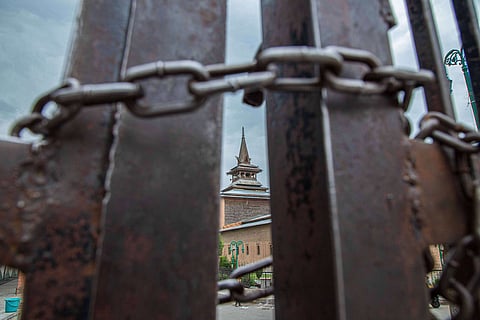Kashmir’s religious institutions are the Modi government’s latest battlefront
On 24 June, residents of a village in Pulwama district in India-administered Kashmir alleged that a group of Indian army personnel entered a mosque at dawn and interrupted the azaan, then forced the worshippers to chant "Jai Shri Ram", a Hindutva war cry synonymous with anti-Muslim violence in India. Witnesses also alleged that the soldiers thrashed and detained several villagers during what was described as a mock counterinsurgency drill. While there were reports of senior army officers apologising to the villagers later, the incident was not formally acknowledged by the army or the Bharatiya Janata Party-led national government – which, since Jammu and Kashmir was stripped of statehood in 2019, has direct administration of the territory. However, three former chief ministers of Jammu and Kashmir swiftly condemned the actions of the army personnel.
India's armed forces have often been accused of torture and extra-judicial killings in Kashmir, but this incident, and the official silence around it, marked a new and distinct form of systemic coercion happening in the Muslim-majority region. The incident was downplayed in many circles as a one-off, but many others realised that it must be condemned to check the possible communalisation of the Indian armed forces. The sobering truth is that other similar incidents have happened in recent years, and they are symptomatic of a sharp rise in communal bias within the Indian military.

